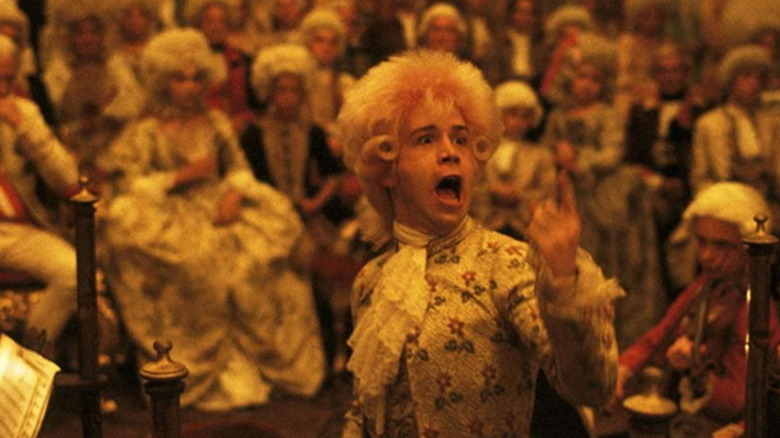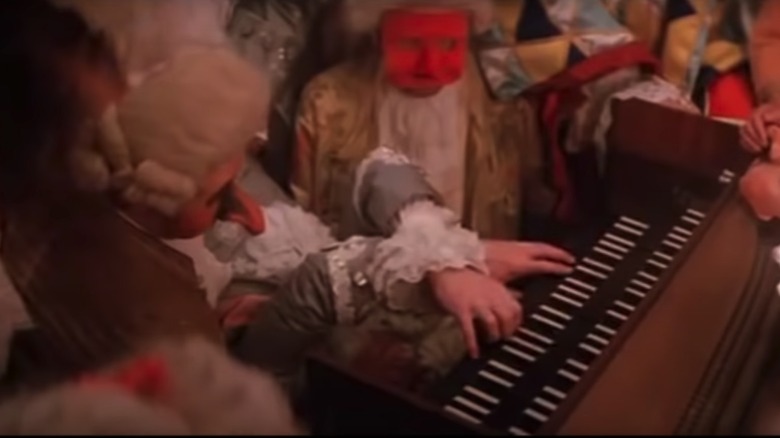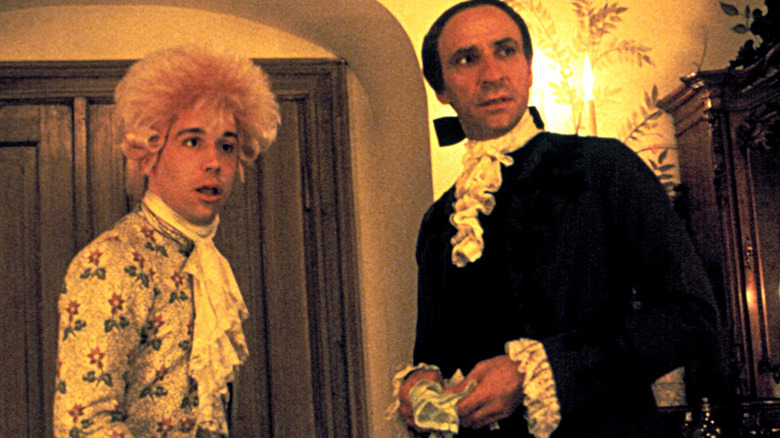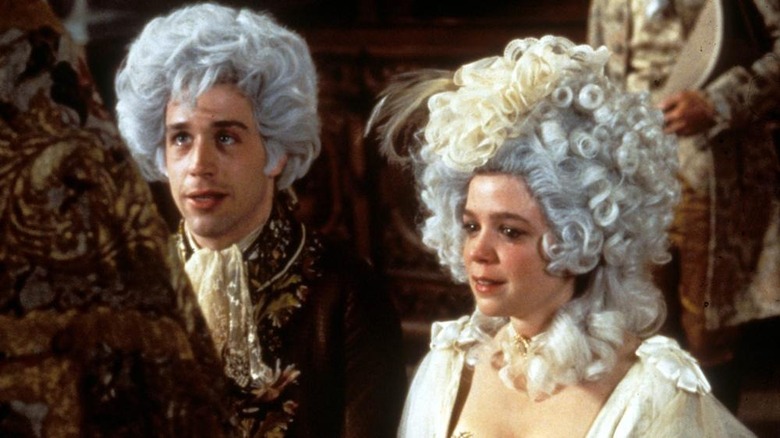Amadeus Shows Us How Perfection Can Break You, And How Jealousy Is Worse
When I'm feeling stressed, my favorite thing to do is put on a beloved film. You know, the type of movie where you can recite every single word from memory. There is something soothing about watching a film where there are no surprises. Add ridiculously good performances, incredible music, and, for me, something that happened before the year 1900, and I'm yanked right out of my funk. "Amadeus" is one of those films. The first time I saw it, I was overwhelmed by the color and the spectacle (I was a little kid at the time). It made me want to listen to more of Wolfgang Amadeus Mozart's music, to research the costumes and the time period, and become a singer.
I attended a vocal music camp (oh, shut up) one summer when I was in high school, and we performed Mozart's Requiem. "Amadeus" was always playing in the background in the dorms, so I've probably seen the film 100 times. Heck, I might have seen it more times than "Star Wars: A New Hope." I feel my geek cred leaking out through my ears like little LEGO bricks.
Tom Hulce plays the role of Wolfgang Amadeus Mozart, one of the greatest composers of all time. He's a mad genius, with an emphasis on mad. Mozart has been pushed musically, and mentally abused by his father to hone his childhood genius. And when his father dies, it starts a downward spiral for poor Wolfy. He's drinking too much, he's terrible with money, he's vulgar and out of control, but his musical genius and charm makes him irresistible. F. Murray Abraham plays Antonio Salieri, a lesser-known composer who is insanely jealous of Mozart and can't believe someone so ... ridiculous can have such genius. He comes up with a terrible and cruel scheme to take Mozart down and drive him madder than he already is.
He even plays the harpsichord backwards
If the gorgeous production design, the costumes, the music (THE MUSIC!), and the story aren't enough to grab you, perhaps the fact that "Amadeus" was nominated for 53 awards when it came out in 1984 and it won 40, including eight Oscars with Best Picture among them. Both Hulce and Abraham were nominated for Best actor, with Abraham ultimately winning.
And if even that isn't enough, maybe the fact that Mark Hamill (who played the role after Tim Curry(!) in the Broadway production of the 1979 play by Peter Shaffer) was up for the role of Mozart might pique your interest. What about the fact that it was directed by Miloš Forman? The film was selected for preservation by the United States National Film Registry by the Library of Congress. Oh, and Forman collaborated with choreography icon Twyla Tharp for "Amadeus." There is even a very young Cynthia Nixon in here for good measure. You will not be rooting for her character, I can tell you that much.
The joy of Mozart
Every single thing in this film is completely engrossing. Yes, it's a period piece, and some people shy away from that, but I promise you it doesn't matter if you know anything at all about Mozart or Salieri. First of all, the dark rivalry between them (mostly from Salieri's side) is based on a play from the 19th century by Alexander Pushkin. It's not historically accurate. This isn't really about history in the end. It's all about jealousy, and what it can do to someone. It's about how it consumes your soul and makes you do things that, in your right mind, you'd never consider.
Playing "mad" is a trap for a lot of actors. You can push it too far (ahem, Jared Leto as the Joker) and turn into a cartoon. You can pull back too far and just come off as quirky. Hulce is an absolute tour de force here. On the one hand, he's got the childlike joy and whimsy of someone who, after being allowed to do nothing but practice his music by his terrible father, had to steal time for fun and pack a lot of it into a little time. On the other, he's driven to please his father even more after the man dies. His approval, even after death, haunts Mozart — quite literally — and drives him to self-destruction.
Watching this film is watching perfection break, because no one could be that perfectly talented without serious cracks forming on their insides. Even his wild laugh shows you both sides of him — as if he's releasing joy and terrified hysterics at the same time.
'I'm a vulgar man, but I assure you, my music is not'
F. Murray Abraham's talent isn't exactly unknown, but he's absolutely perfect here. I think, ultimately, he has a much harder job than Hulce. He's the heavy, but he does his villainous work so delicately. I realize that's a weird way to put it, but it's like every movement, every glance is perfectly calculated. It's precise, which is a strange compliment, but that is exactly the way Salieri composed. Very little fire in it, just craft, where Mozart's music was wild and untamed, despite the craft, rather than because of it. (Sorry for the nerdiness. As I said, I went to music camp.)
What Abraham does with his precision though, is masterful. You can see what's happening to him under the surface in such subtle ways, and how carefully each step is taken in his plot to take Mozart down. This film is like an acting class (and a directing class, and a set design class), but the most entertaining class you've ever been to.
Excuse me while I go watch this for the 101st time.



